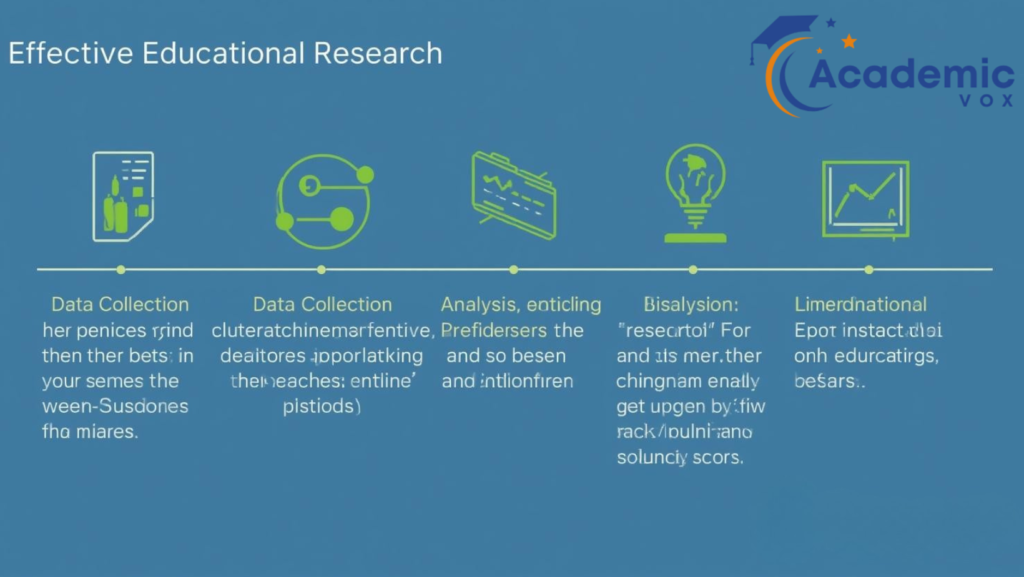How to Conduct Effective Educational
Educational research is the core of the IGNOU MESP-001 Project, which is meant for Master of Education (M.Ed.) students. The project not only enhances research skills but also equips students to deal with real-world educational problems. Nevertheless, most of the students are intimidated by research because it entails a rigorous process of subject selection, methodology, data collection, and analysis.
This step-by-step manual will guide you through conducting effective educational research for MESP-001, making your project work systematic, professional, and IGNOU guideline compliant.
1. Recognizing the Role of Educational Research in MESP-001
Prior to starting, it’s essential to know why educational research is central to MESP-001:
- Development of Skills: Educates on analyzing, interpreting, and applying findings in actual educational environments.
- Problem Solving: Facilitates solving problems in teaching, learning, curriculum development, and assessment.
- Knowledge Contribution: Contributes to the pedagogy field and classroom practice.
Professional Growth: Empowers students with skills to work in academic and administrative positions.
2. Important Steps to Perform Effective Educational Research for MESP-001
Step 1: Select an Appropriate Research Topic
Your project’s success lies in selecting the correct topic. Make sure it is:
- Associated with existing educational problems.
- Specific and narrow (not too general).
- Practical in time and resources.
- Engaging and inspiring for you.
Examples of Research Topics: - Effect of online learning tools on pupils’ grades.
- Teachers’ views of Continuous and Comprehensive Evaluation (CCE).
- Cooperative learning techniques in primary schools: effectiveness.
Parental involvement: its role in raising students’ learning outcomes.
Step 2: Review of Literature
A review of the literature assists you in comprehending earlier research in your field of interest. This involves:
- Reading books, journals, and existing research.
- Sourcing research gaps.
- Developing a theoretical framework for your research.
Tip: Always make note of salient references so you do not plagiarize.
Step 3: Define Research Questions and Objectives
Your research must clearly indicate:
- Research Problem: What is the problem you are trying to solve?
- Objectives: Well-defined goals your research seeks to attain.
Hypothesis (if applicable): A preliminary prediction that can be tested.
Step 4: Select the Research Design
Research design decides the overall strategy of your research. Some typical designs in MESP-001 are:
- Descriptive Research: Tells us about current practices, attitudes, or trends.
- Experimental Research: Tests cause-and-effect relationships.
- Action Research: Resolves problems in a classroom or school environment.
Survey Research: Asks questions to a large group and collects data using questionnaires.
Step 5: Select Population and Sample
Identify your target population (students, teachers, schools) and choose a representative sample. Employ methods such as:
- Random Sampling
- Stratified Sampling
Purposive Sampling
Step 6: Data Collection Methods
Typical tools are:
- Questionnaires – for large samples.
- Interviews – for depth of understanding.
- Observation – to observe classroom behaviors.
Tests – to assess student learning outcomes.
Step 7: Data Analysis and Interpretation
Once data is collected, analyze it in a systematic way:
- Quantitative Analysis: Apply percentages, mean, median, correlation, t-test, etc.
- Qualitative Analysis: Discover themes, patterns, and insights.
Interpret the results according to your objectives and literature review.
Step 8: Report Writing
The format of the MESP-001 Project Report typically consists of:
- Title Page
- Acknowledgment
- Certificate of Originality
- Introduction
- Review of Literature
- Research Design and Methodology
- Data Analysis and Findings
- Discussion and Conclusion
- Educational Implications
- References
11. Appendices (if any)
3. Tips for Conducting Effective Research
- Follow IGNOU Guidelines: Stick to prescribed format and word limits.
- Be Ethical: Maintain confidentiality of participants.
- Use Clear Language: Avoid jargon and write in simple academic style.
- Stay Organized: Keep track of timelines, references, and data.
Seek Guidance: Consult your supervisor regularly.
4. Common Challenges and How to Overcome Them
- Difficulty in Topic Selection: Start early and consult your guide.
- Data Access Restrictions: Utilize small samples or case studies in the absence of larger data.
- Time Management: Divide your project into milestones.
- Plagiarism Concerns: Paraphrase and cite at all times.
5. Analysis of Data Uncertainty: Employ simple statistical tools or get expert assistance.
5. MESP-001 Sample Research Ideas
For ease of the process, here are some sample research ideas:
- Comparative study of online vs offline teaching effectiveness.
- Teacher motivation’s role in classroom performance.
- Peer learning impact on academic achievement.
Stress management skills study among secondary school students.
6. Educational Implications of MESP-001 Research
Your research must not be purely academic but have practical implications like:
- Enhancing classroom practice.
- Assisting policymakers in curriculum design.
- Informing teacher training courses.
Improving learning outcomes for students.
7. Final Checklist Before Submission
✔ Verify originality and plagiarism-free content.
✔ Follow IGNOU’s word limit and format.
✔ Proofread for mistake.
✔ Obtain your supervisor’s clearance.
✔ Include a certificate of originality.
Conclusion
Carrying out effective educational research for MESP-001 is not simply fulfilling an academic requirement, but also building professional skills that contribute to the education field. By well choosing a topic, adhering to systematic research approaches, and producing an organized report, you can excel at your M.Ed. project.
Recall that your research may initiate significant changes in education practices and create opportunities for your further academic and professional development.

